
Worksheets and No Prep Teaching Resources
Reading Comprehension Worksheets
Animal Themes
Invertebrates
Rain Forest
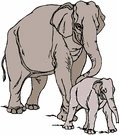
Animal Themes
 Worksheets and No Prep Teaching Resources Reading Comprehension Worksheets Animal Themes Invertebrates Rain Forest |
 Animal Themes |
| edHelper's suggested reading level: | grades 3 to 5 | |
| Flesch-Kincaid grade level: | 5.24 |
| Spiders - Introduction |

|
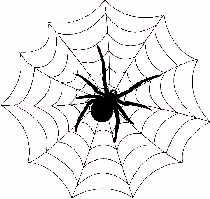 1 Spiders have eight legs. They are not insects, because insects must have six legs. Spiders are excellent hunters. They have poison glands in their mouths that they use to kill or paralyze their victims. They feed on insects, worms, and their own kind. Some even eat fish, lizards, or birds! There are no vegetarian spiders! Indeed, all spiders are meat-lovers!
1 Spiders have eight legs. They are not insects, because insects must have six legs. Spiders are excellent hunters. They have poison glands in their mouths that they use to kill or paralyze their victims. They feed on insects, worms, and their own kind. Some even eat fish, lizards, or birds! There are no vegetarian spiders! Indeed, all spiders are meat-lovers! |
Create Weekly Reading Books
Prepare for an entire week at once! |
| Leave your feedback on Spiders - Introduction (use this link if you found an error in the story) |
 |
Animal Themes
|
 |
Invertebrates
|
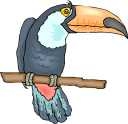 |
Rain Forest
|
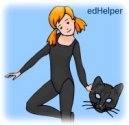 |
Free Halloween Worksheets | edHelper.com
|
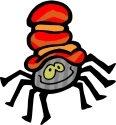 |
Spider Activities, Worksheets, Printables, and Lesson Plans
|
|
|